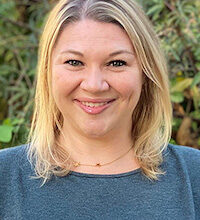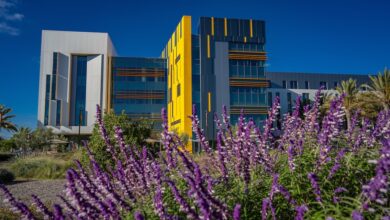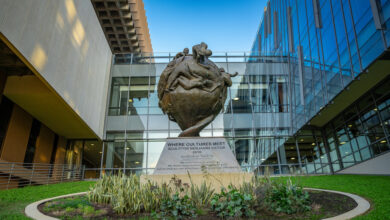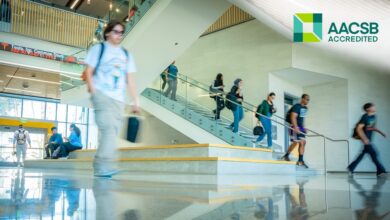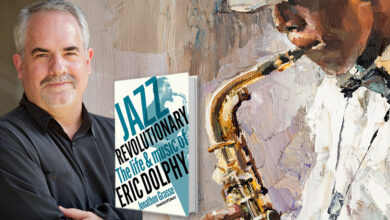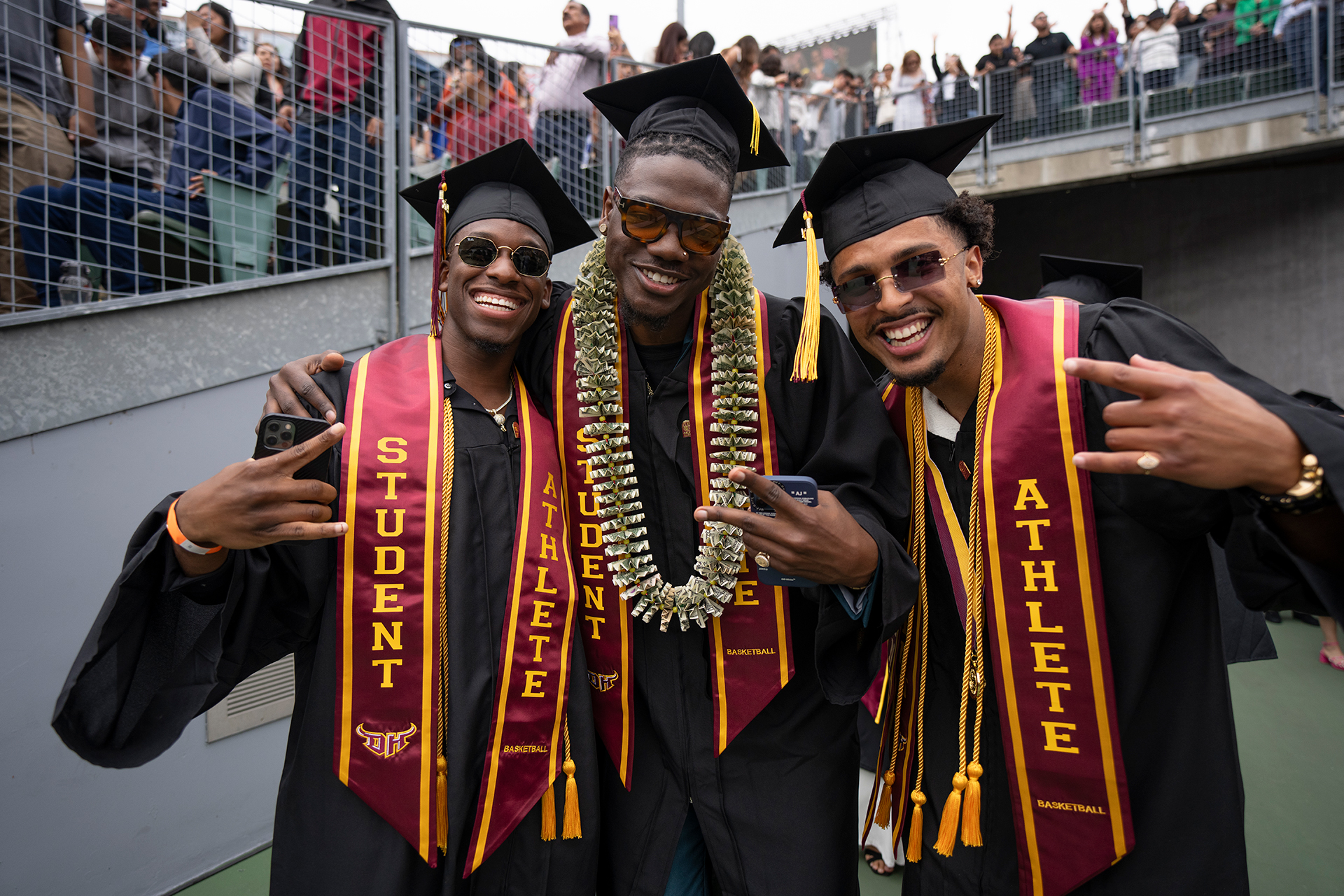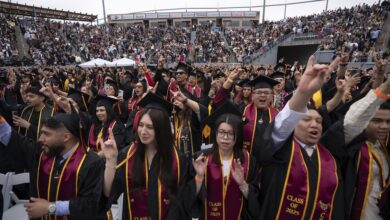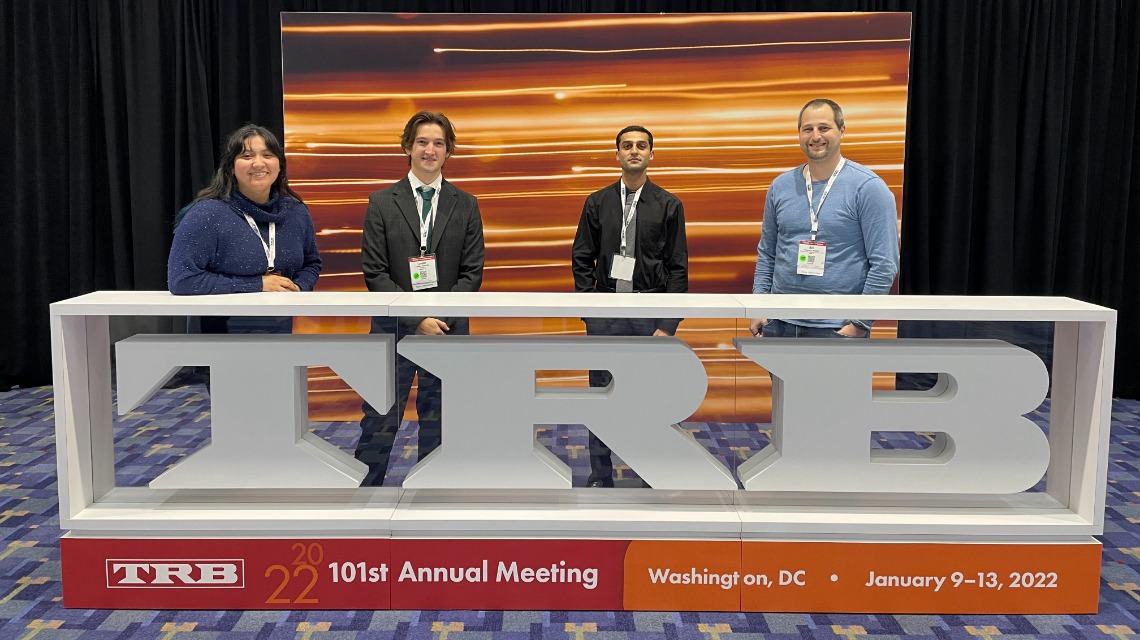
For the second year in a row, four CSUDH students have been named to the Dwight David Eisenhower Transportation Fellowship Program (DDETFP) by the Department of Transportation Federal Highway Administration for their transportation-related research.
A prestigious program that grants 150-200 applicants awards ranging from $1,500 to $10,000 a year, the DDETFP looks to consistently advance the transportation industry and workforce through education.
The CSUDH student recipients are Kimberly Alejandra Campos, Lander Gaminde, Benjamin Pochop, and Hashaam Younis. In addition to the monthly stipend that funds their research, the awardees also had the opportunity in January 2022 to meet fellow researchers at the annual Transportation Research Board Conference in Washington, D.C.
Assistant Professor of Economics Mahmoud Salari, who serves as the principal investigator of the award, says the fellowship enables students to begin forging their career path in the industry.
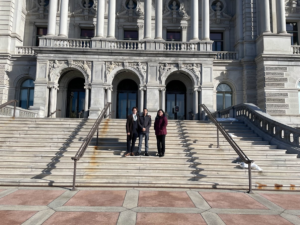
“They can make their own connections, [and] they can work on the research topic they like,” he said. “It’s good motivation for them and makes them ready for the job market. With this scholarship, you get some qualifications for working in this area.”
With eight students having received the DDETFP within the last two years, Salari hopes that students’ successes will shine a light on CSUDH and encourage future students to apply to receive funds for their research.
“Hopefully next year we will have more applicants so we can extend the budget and request for more funding for more certificates in this area,” Salari said. “I want to secure this [grant] forever for the CSUDH students.”
While the fellowship might seem exclusive, it is open to anyone who wants to apply–even for students whose interests are not solely transportation. Campos, an environmental science graduate student who applied and was among the four recipients this year, encouraged students to be creative when it comes to how their field unknowingly benefits transportation.
“There are so many different ways that transportation and mobility are interdisciplinary,” Campos said. “So just be creative and enjoy what you are proposing to do. Because if you enjoy what you do, and it’s in the field that you’re interested in, the project will be a lot of fun, and it’ll be really beneficial having that additional funding to provide for your education.”
The CSUDH Student Fellows
Kimberly Alejandra Campos: Graduate student, environmental science
Faculty Advisor: Tianjun Lu, assistant professor of earth sciences
Campos is interested in improving air quality especially on and around campus, as well as making biking a more accessible and safer option of transportation. As for current projects, she is working on a literature review of traffic-related air pollution and finding solutions that she will later use for her thesis. Additionally, for a class project, Campos is personally cycling from her home to campus to determine how safe it is for others so that there is a more sustainable way to commute.
“I got the news right before I was doing a research presentation for a class. And it was just a lot of emotions because I was super excited. It really helps to be able to get that funding for research, because research equipment can be kind of expensive, but also how I can use it to help support myself and dedicate myself to research. So it feels good to have that support,” Campos shared.
Lander Gaminde: Undergraduate student, Spanish and international business.
Faculty Advisors: Kirti Celly, professor of business, and Claudia Mendoza Diaz, lecturer of women’s studies
Passionate about more sustainable transportation, Gaminde believes “the more green, the better,” and plans to research more about ways to implement that mantra. Prior to the fellowship, he worked on a project about transportation between Europe and the United States and the effect COVID-19 had on it. Gaminde is also writing a paper in both English and Spanish so that it reaches more people, especially as California is home to a big Latino/a community.
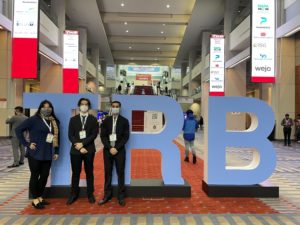
The ability to travel to Washington, D.C. for the TRB conference, instead of experiencing it virtually, made a huge difference to the fellowship recipients and stood out to Gaminde.
“You got to talk with a lot of people who were more advanced in your fields. They give you their contacts-if you need any help or plans for the future, that was really helpful,” Gaminde said.
“You get to meet with people from other countries, and it was great. I got to meet a student from China, and we exchanged contacts. It was very, very nice.”
Hashaam Younis: Undergraduate student, business administration with a concentration in supply chain management and logistics
Faculty Advisor: Thomas Norman, professor of management and marketing.
Reducing global warming, the negative impacts on the maritime environment, and both understanding and relaying information about them to the public are Younis’s most prominent interests within transportation. His current research is determining the correlation between the volume of vehicles, the levels of PM (particulate matter) 2.5, and COVID-19. Specifically, this research will focus on the commute from San Pedro and Long Beach, Calif. with that in New Jersey. Through this, Younis will depict the differences between the volume of the vehicles and pollution emitted, as well as COVID-19’s role.
“[The fellowship is] an opportunity to excel in one way or another-whether you want to have more experience [or] get a job in the transportation industry,” Younis said. “This is something [future students] should take with pride.”
Benjamin Pochop was unavailable for comment at the time of publication.

